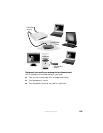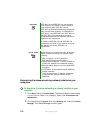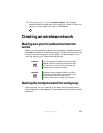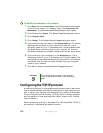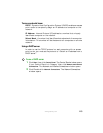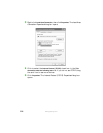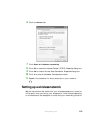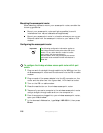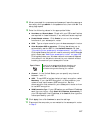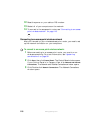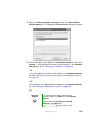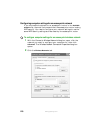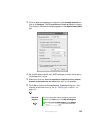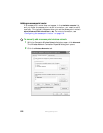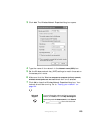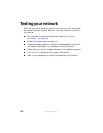
117
www.gateway.com
8 When prompted for a username and password, leave the username
box empty and type admin in the password box, then click
OK. The
setup page opens.
9 Enter the following values in the appropriate fields:
■ Host Name and Domain Name - Check with your ISP to see if entries
are required in these fields and, if so, what entries are required.
■ Enable/Disable wireless - Click Enable to turn on the wireless
functions of your access point router.
■ SSID - Type a unique name for your wireless access point router.
■ Allow Broadcast SSID to associate - Clicking Yes allows you to
automatically see the SSID in the
Available Networks list (see
“Connecting to an access point wireless network” on page 118).
Clicking
No means that you will need to manually add the access
point router (see “Adding an access point router” on page 122).
Clicking
No makes your wireless network more secure because
intruders will not be able to connect to your network without
knowing the name of your access point router.
■ Channel - In the United States, you can specify any channel
between 1 and 11.
■ WEP - To use WEP (wired equivalent privacy) encryption, select
Mandatory. If you use WEP encryption, all computers on your
network must use the same WEP encryption. See the
documentation that came with your access point router on how
to use WEP encryption.
■ WAN Connection Type - If your ISP assigns you a different IP address
each time you log on, click
Obtain an IP Address Automatically. If
your ISP requires a fixed IP address, click
Static IP, then type the
values provided by your ISP.
10 Click Apply, then click Continue to save the settings.
11 Disconnect the computer you connected to the access point router
in Step 5.
Tips & Tricks If you live in an apartment building or dormitory, you
may want to click No to prevent your neighbors
from discovering and accessing your network.



